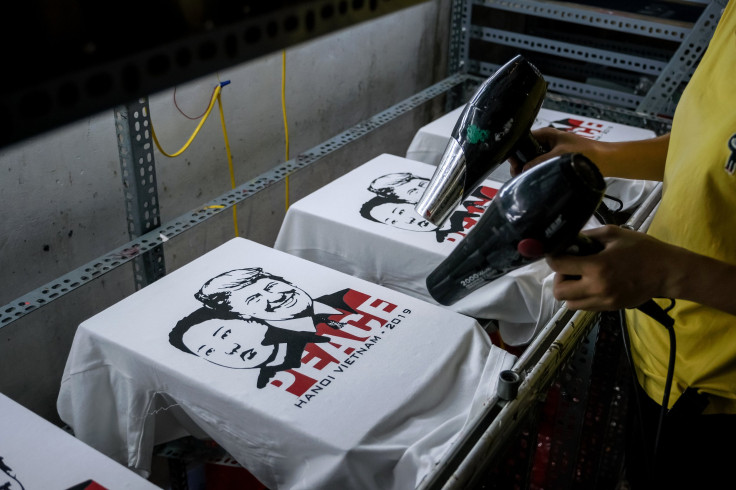North Korea - US Relations: Will Trump Address Human Rights With Kim Jong-un At Hanoi Summit?

As the upcoming second summit between President Donald Trump and North Korean leader Kim Jong-un approaches, many have speculated as to whether North Korea's woeful human record will be addressed.
Human Rights Watch describes North Korea as "among the world's most repressive countries," prompting concerns about any deal for North Korea to dismantle its nuclear program while continuing to violate human rights.
The summit, which begins Wednesday in Hanoi, Vietnam, comes less than a year after the first summit, in which Kim made a vague pledge towards denuclearization.
Since Trump and Kim first met in June 2018, there have been no substantial changes to North Korea's military program, a subject set to be central to the upcoming conference, as well as economic sanctions made against the country by the United Nations and multiple countries. A North Korean official recently stated the sanctions have largely contributed to the country's major food shortages.
Lindsay Lloyd, Director of the Human Freedom Initiative at the George W. Bush Institute, has stated that talks involving denuclearization and opening trade negotiations would be impossible to conduct without bringing up North Korea's abuses against its people, as economic sanctions are tied to human rights violations.
"Unless North Korea addresses some of those human rights concerns that we have, Congress is unlikely to approve any sort of deal with North Korea," Lloyd said in a recent discussion over the upcoming summit. "It has to be part of the broader negotiations."
Amnesty International reported in 2017 and 2018 that North Korea limited freedom of expression and freedom of movement as well as subjected its people to harsh working conditions and fear of arbitrary detainment in prison camps, while Lloyd pointed out that "slave labor or 'military-first policies,' allow the North Korean regime to prioritize threats to the outside world over the welfare of its people."
Lloyd named a number of approaches the Trump administration could use to bring up human rights violations, which included addressing specific human rights interests like "helping on issues like people with disabilities," which is a widespread concern in North Korea, or other "noncontroversial" issues like it.
"It would be a way to start cooperation and start accountability for the regime," Lloyd said.
He also suggested that the administration appoint a special envoy for human rights, a position which has been vacant for over two years.
In January, Tomás Ojea Quintana, U.N. special rapporteur for North Korea human rights, told reporters in South Korea that one source who had been in North Korea said that "the whole country is a prison." Quintana had interviewed a number of recent defectors from North Korea and was barred from entering the North Korean capital Pyongyang during his trip to the peninsula.
"Any accord that the parties could reach will remain fragile unless human rights issues are not discussed and unless there is a plan on how to address that situation in North Korea," said Quintana.
The U.N. Security Council in August 2017 imposed new sanctions against North Korea, it's seventh set of sanctions since North Korea carried out nuclear tests in 2006.
© Copyright IBTimes 2025. All rights reserved.





















